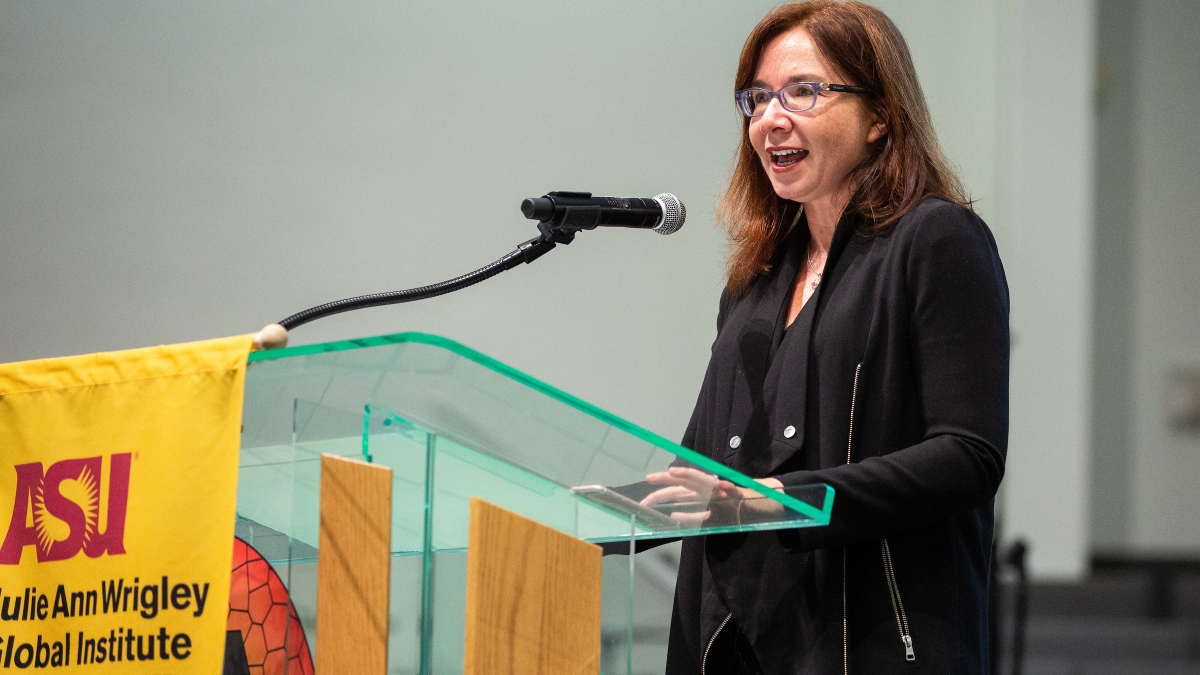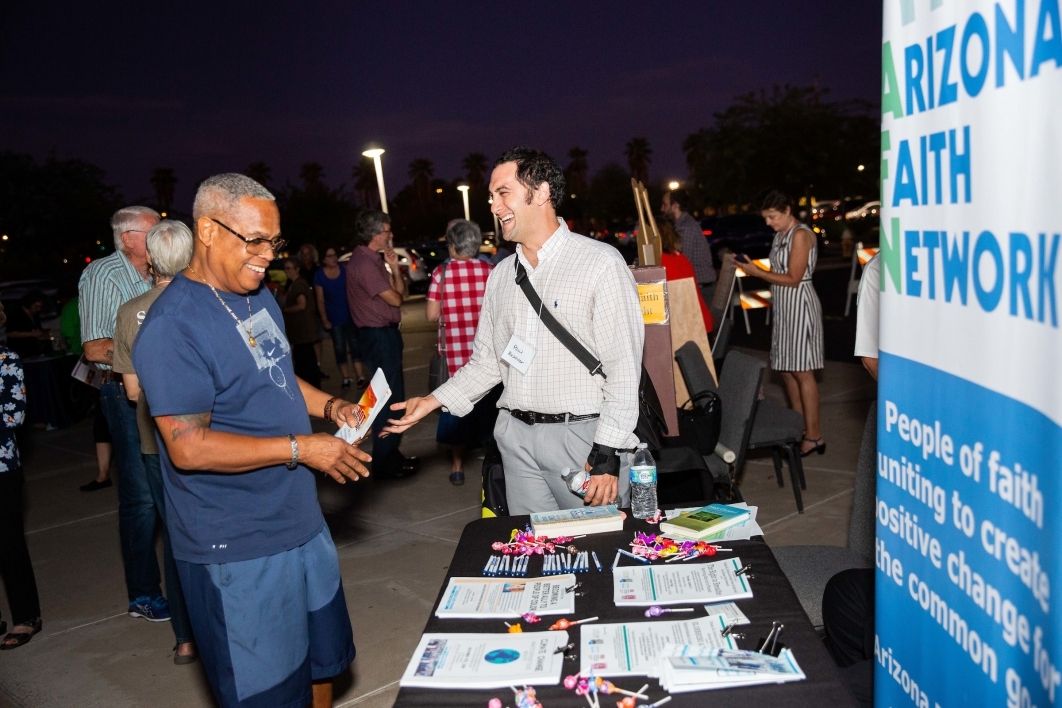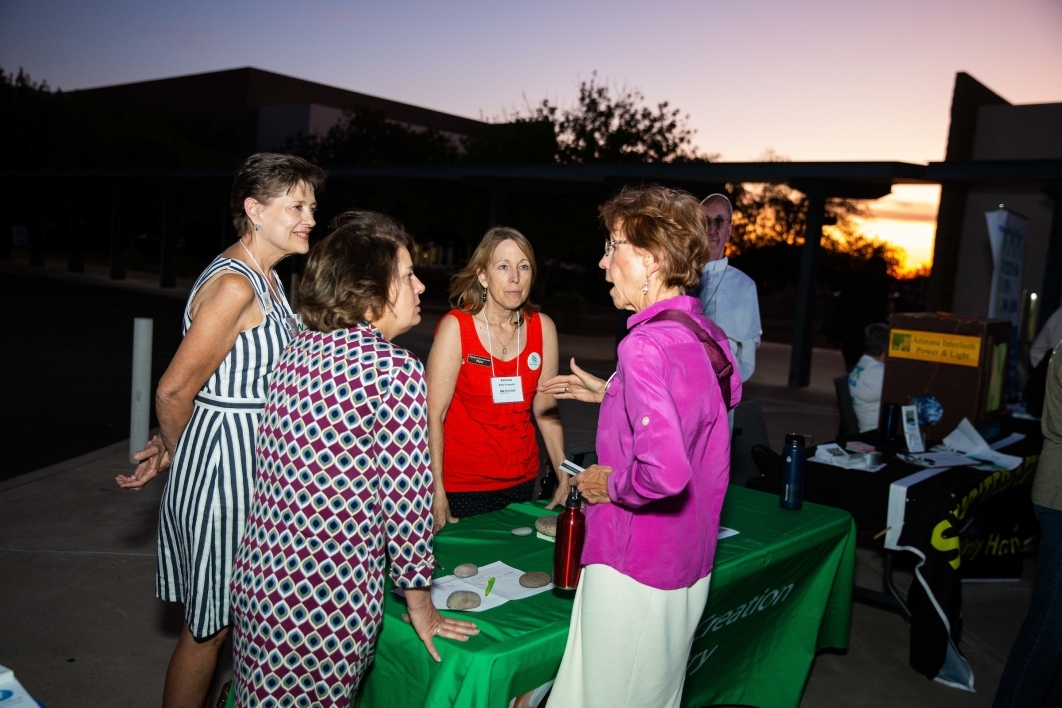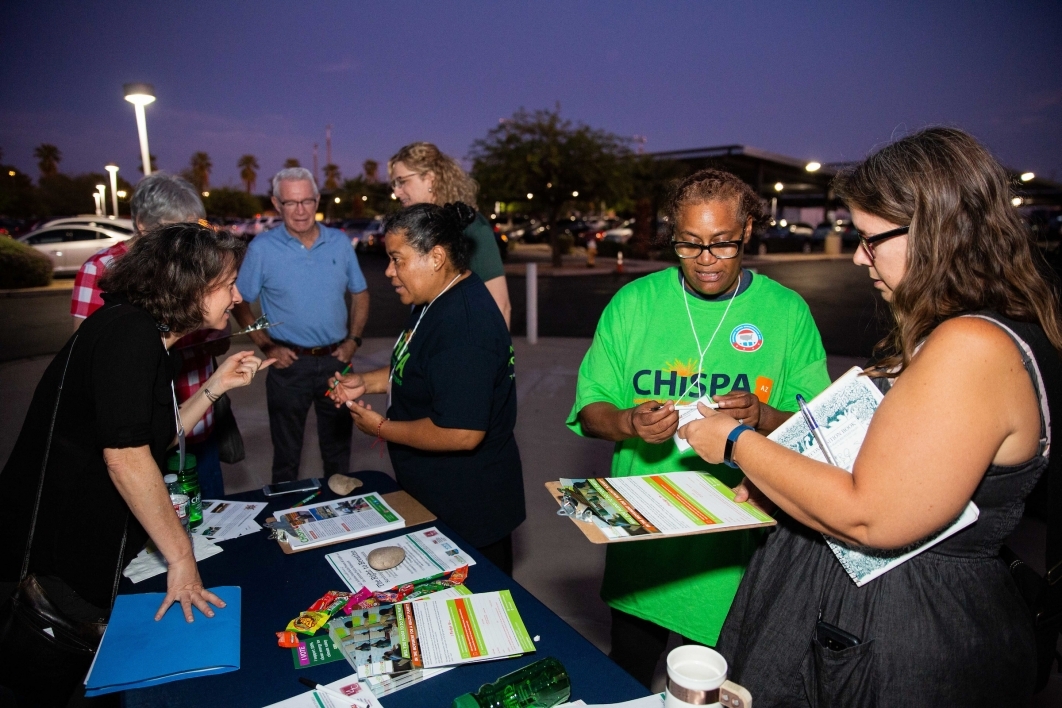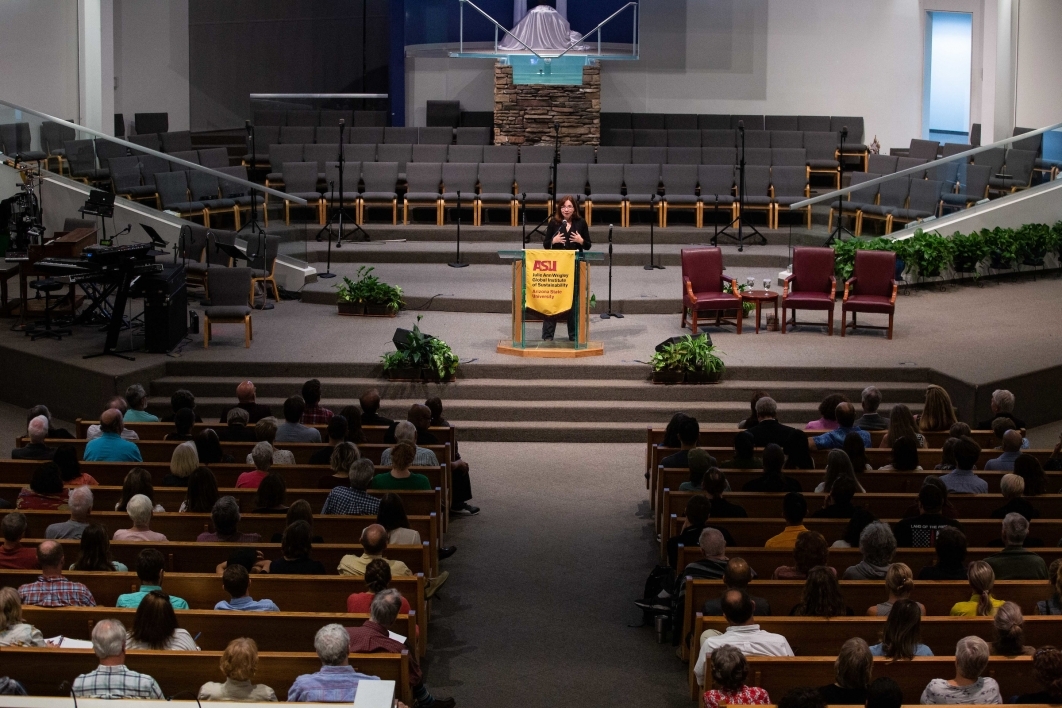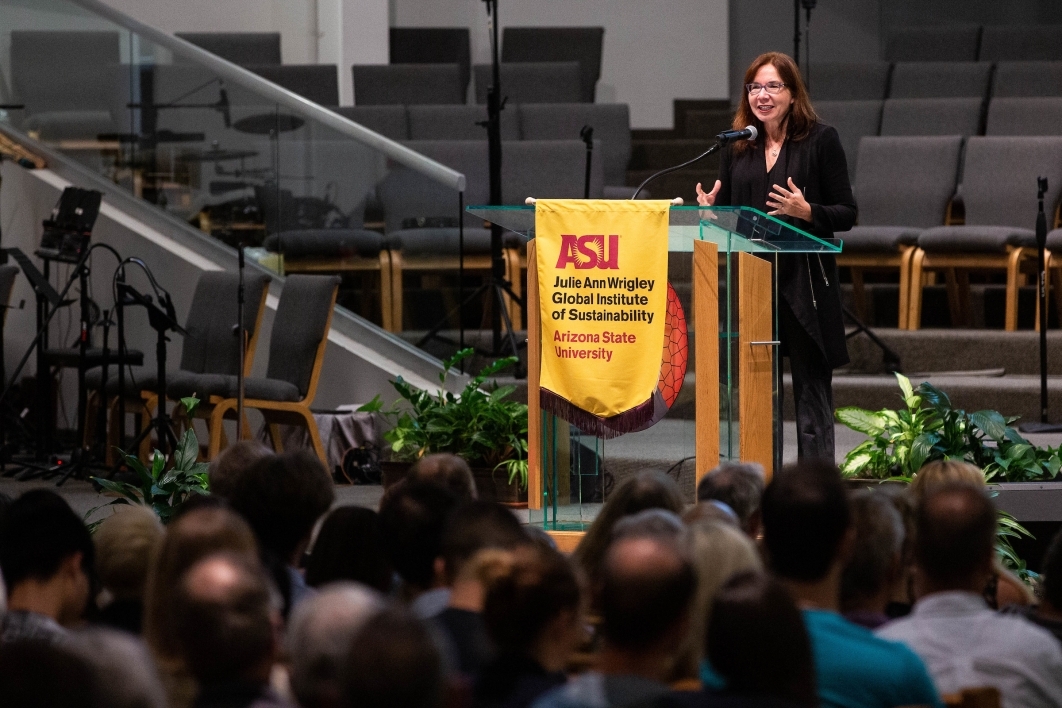Climate scientist Katharine Hayhoe was once invited to speak at a west Texas Rotary Club luncheon.
It was a tough crowd of Texas businessmen. Arms crossed. Bodies taut in chairs. Side-eye being thrown at the woman who’d invited her. Yeah, we’re going to have a talk about this later.
But Hayhoe, thinking quickly on her feet, had noticed a giant banner with the Rotary Four-Way Test on it when she came in. That test asked four questions: Is it the truth? Is it fair to all concerned? Will it build goodwill and better friendships? Will it be beneficial to all concerned?
She quickly rearranged her prepared talk and began. Arms uncrossed. Bodies relaxed. Expressions softened. She’d won over her audience by connecting with them on common ground.
That was the theme of a talk the world-renowned scientist and communicator gave last night in Phoenix about how to discuss climate change with skeptics of all stripes.
“Talking Climate: Bridging the Divides” was sponsored by the Julie Ann Wrigley Global Institute of Sustainability at Arizona State University.
Hayhoe is a leading climate scientist and professor of political science at Texas Tech, and she is well-known for engaging diverse communities, including evangelical Christians, in the climate change movement. She was just named “U.N. Champion of the Earth,” the United Nations' highest environmental honor, for her "stalwart commitment to quantifying the effects of climate change and her tireless efforts to transform public attitudes.”
About 5% of the population will never have their minds changed. And the rest won’t be swayed by brandishing reports saying climate change is human-caused, Hayhoe said. (Standing in the cavernous Pilgrim Rest Baptist Church in downtown Phoenix, she said a stack of those reports would reach to the roof.)
“That constructive conversation begins not with what we disagree with, but what we agree about. We have to begin the conversation with what we agree about,” said Hayhoe, an evangelical Christian herself and the bestselling author of eight books, including “Climate for Change: Global Warming Facts for Faith-Based Decisions.”
“If you don’t know what you agree with someone about, ask them questions and get to know them,” she said. Do you enjoy the same activities? Hiking, fishing, gardening? You live in the same place. Talk about why you enjoy living there.
“If you don’t find something to agree on, you’re not the right person to have that conversation,” she said. “If you cannot begin a conversation with that person with something you truly, genuinely agree on, then it’s not going to be a constructive conversation.”
But if you do, then you can turn the conversation around.
“Well, if we both care about this, then naturally we would both care about climate change because it’s affecting this thing that we both care about. But then we can’t end without talking about solutions because 99.9% of the people who adopt the science or religiousy smoke screens is not because they have a problem with basic science or what the Bible says; it’s because they’re afraid of the solutions. So you have to talk about the solutions in order to change people’s minds.”
That might take different forms with different people. A scientist Hayhoe knows did a great deal of work taking down his skeptical father’s arguments against climate change. (There are hundreds of arguments against it. It’s a godless liberal atheist conspiracy. The Earth is going through a natural cycle. Where’s the warming when it’s so cold this winter? And so on.) Finally, the father — a fiscal conservative — ran the numbers on a rooftop solar installation. When he found out what he could save, he had it installed.
Not long afterward, the man was a believer. And he proudly proclaimed he was doing his bit — to anyone who would listen.
Top photo: Climate scientist and Texas Tech Professor of political science Katharine Hayhoe addresses the audience as she speaks about climate change and dialogue during part of the 2019 Wrigley Lecture Series at the Pilgrim Rest Baptist Church in Phoenix on Tuesday evening. Hayhoe is the best-selling author of eight books including "Climate for Change: Global Warming Facts for Faith-Based Decisions" and used the lecture to speak about climate change and what it means to us and the places that we live. Photo by Deanna Dent/ASU Now
More Law, journalism and politics
Law experts, students gather to celebrate ASU Indian Legal Program
Although she's achieved much in Washington, D.C., Mikaela Bledsoe Downes’ education is bringing her closer to her intended destination — returning home to the Winnebago tribe in Nebraska with her…

ASU Law to honor Africa’s first elected female head of state with 2025 O’Connor Justice Prize
Nobel Peace Prize laureate Ellen Johnson Sirleaf, the first democratically elected female head of state in Africa, has been named the 10th recipient of the O’Connor Justice Prize.The award,…

Native Vote works to ensure the right to vote for Arizona's Native Americans
The Navajo Nation is in a remote area of northeastern Arizona, far away from the hustle of urban life. The 27,400-acre reservation is home to the Canyon de Chelly National Monument and…
